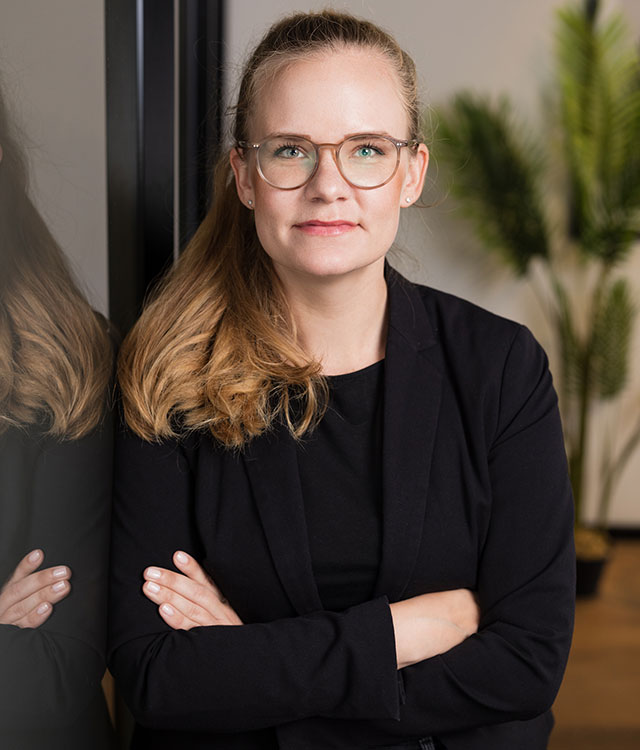Ann-Sophie Czech, Co-Founder von ChangePath, hat mir spannende Fragen zu meinem beruflichen Werdegang meinen diversen Jobwechseln gestellt – ein toller Impuls und Moment für mich, mal aus einer anderen Perspektive und mit etwas Abstand auf meinen bisherigen Weg zurückzuschauen.
Wenn ich ein Buch über meine bisherige Hashtag Karriere schreiben würde, hätte es den ehrlichen Titel: Aufstiegsstress. Warum? Mein sehr persönlichen Rückblick auf meine beruflichen Veränderungen – von Ausbildung und Studium über Consulting, Banking und Fintech sowie Selbstständigkeit mit keen&finance® bis hin zu meiner heutigen hauptberuflichen Tätigkeit in Lehre und Forschung – wurde am 07.05.2024 im ChangePath-Newsletter veröffentlicht.
Übrigens: Mit ChangePath möchte Ann-Sophie und Ihr Team Menschen bei beruflichen Veränderungen mit Hilfe einer KI-basierte Self-Service-Lösung begleiten. Mich persönlich begeistert die Lösung, da externe Unterstützung auch für mich wichtig war, wenn ich bei beruflichen Schritten mal nicht auf die Erfahrungen und die Ermutigung von Familie, Freund:innen, Kolleg:innen, Führungskräften oder Mentor:innen zurückgreifen konnte oder wollte.
Emancipating yourself from your social background and upbringing
Can you please describe your career transition, Christin?
I would label my career history as „Ascent Stress“ but with a happy ending. For a long time, my career decisions were driven by the need to achieve a certain income level or a prestigious job title, which ultimately translated into a constant pursuit for more money.
This didn’t stop even after reaching my initially desired income. It took me a while and some job changes to realize that continually chasing higher earnings for no real reason, was a simple yet unsustainable goal resulting in a gradual depletion of my energy and motivation over time and ultimately an unfulfilled personal life.
The turning point came when my savings reached a level that provided me the security and allowed me to manage the risks associated with job transitions effectively to finally explore my passions – I have never given myself this space before.
So, I allowed myself to look beyond financial gains and pursuing passions. This shift marked the beginning of my true career transition – when I started keen&finance® and shifted to teaching and research. This shift allowed me to seek fulfilment and creativity in my career, marking a significant pivot towards what truly mattered to me. Today, I support banks and fintechs as a freelancer in digital product development and the investment business, research in the area of female fintech design and teach in the areas of digital product management and digital transformation in SMEs and banking.
But reflecting on my path from a bank trainee to working on a doctoral thesis now, it’s clear that my career has always had one consistent theme. My personal mantra to summarize all my career transitions: „I lo(i)ve Banking and Fintech!“ which symbolizes the red thread through my diverse career from traditional banking, through consulting, short excursion into the startup world, to entrepreneurship and now to academia — a transition I could never have anticipated 14 years ago as a worker’s child with the belief that you will have one job until you retire.
What were your biggest challenges in this transition?
Initially, my perception of societal expectations made it difficult for me to justify career changes that did not come with a financial upgrade – not only to myself but also to my family, friends, colleagues, managers and supporting mentors. When I invested thousands of euro in a part-time master’s degree it felt as though spending money on a new car was more acceptable than justifying the expense of studying, especially if it was solely for personal growth and not a specific job description.
The pressure to justify career changes based on financial gain rather than personal fulfilment was a constant hurdle, particularly during my transition to a start-up with a lower salary, or when I started my own business after leaving a job I had done only for four months, and again a year ago when I decided to pursue my doctoral thesis despite a significantly lower salary.
Moreover, coming from a working-class background, there was a persistent fear of regressing back to a lower income bracket, which I now recognize as a form of financial anxiety. This irrational fear often clouded my decision-making process. Overcoming these mental barriers required a lot of courage and strategic financial planning, such as having creating a savings buffer to empower myself to take risks in career moves.
My biggest challenge was a recurring pattern in my career choices that kept bringing me back to the same unsatisfying point after a few months in a new role, despite several job changes. I needed to break this pattern!
For example, I was actually lacking creativity in many of my earlier, implementation-focused roles, which I didn’t realize until later, as I didn’t consider myself „creative“—a perception reserved, I thought, only for artists and designers. Overcoming these challenges required both a financial cushion to take bold steps and a mental shift to prioritize personal well-being over financial incentives – coaching helped with that.
What are your biggest learnings and what would you advise people who are thinking about or doing a transition?
Looking back, my initial financial drive was necessary for me to try out and break into fields I’m passionate about – it wouldn’t be honest not to acknowledge the fact that one needs to be able to afford this freedom. So financial preparation is crucial – setting aside a ‚career transition fund‘ can provide the freedom to make decisions based on fulfilment rather than financial necessity.
Inspired by the book „You Don’t Have to Choose When You Have a Thousand Dreams“ by Barbara Sher, I realized that one job may not satisfy every creative urge, which led me to balance execution-oriented roles with more creative pursuits. My crucial piece of advice here is to embrace the complexity of multiple interests and not having the unrealistic expectation that a job will cover all your passions.
I also always advise others to allow themselves a ‚jetlag period‘ of minimum three months to adapt to new roles without harsh judgments, using this time to really settle in and assess the fit after a defined onboarding time. It’s important to view probation periods as mutual trials for both you and the employer and to not shy away from seeking coaching if repetitive dissatisfaction occurs after switching your job.
Also, I think it’s important to be patient and allow time to grow into new roles and responsibilities, resisting the urge to quit due to temporary discontent or impatience. Looking back, I was always very impatient and radical in my decisions in my professional career, which meant that I sometimes left a job before I could really reap the fruits of my work or the fulfilling team spirit after long, hard projects. So maybe don’t be too obsessed with your goals – I usually discovered my passions by chance or through side projects delegated to me by my managers or customers over time, and not through my disciplined career planning.
My last advice is to always remember that, even in a role aligned with your purpose, there will be mundane tasks. The key is to consistently remind yourself of your foundational motivations and the broader purpose they serve. Avoid the allure of superficial career glamour and the trap of social media-induced FOMO (Fear Of Missing Out) showcased on platforms like LinkedIn, which helps maintain focus on what’s genuinely rewarding and what truly matters in your career path – and personal life.

